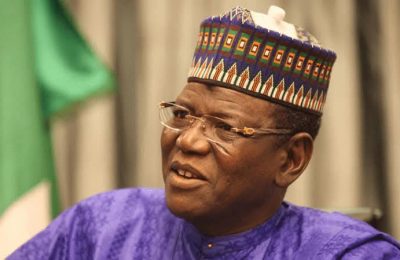
The Speaker of the House of Representative, Rt. Hon. Abbas Tajudeen has subtly advocated for increase school fees if Nigeria’s public universities are to compete favourably with their Counterparts across the world .
Speaker of the House of Representative, Rt. Hon. Tajudeen stated this while delivering a pre-convocation lecture Themed: ‘Harnessing Technology to drive Nigeria’s Transformation agenda’ at the Federal University of Technology, Minna last weekend.

He however lamented that Nigeria Universities are being confronted with chronic underfunding, which he pointed out, has severely impacted infrastructure, research capabilities, and overall educational quality.
“While the expansion of Universities in Nigeria aims to increase access to higher education, it often leads to stretched resources and diminished quality.”
According to him, there is the urgent need to explore a more strategic approach focused on enhancing existing institutions through improved funding and resources allocation by drawing lessons from successful funding models employed by Universities globally and within Africa.
“Globally, Universities adopt diverse funding models that reduce reliance on Government allocation.
“In the United Kingdom, higher education funding is a shared responsibility between taxpayers and graduates, the government covers approximately 35 per cent of teaching cost, while Graduates (parents) contribute 65 per cent through tuition fees and loans”.
He noted that, in the United Kingdom, the government allocates around six billion pounds annually to support research in higher education with Universities also generating significant income from private donations, endowment and research grants.
ALSO READ: Peter Obi faults Tinubu’s request to raise 2025 budget to N54.2trn
“Similarly, in the United States, Universities rely on a mix of government funding, private donations, endowment, and income from research grants, for example, Harvard University endowment stood at $53.2 billion in 2023, which is greater than the whole budget of the entire west Africa countries.”
Hon Tajudeen thereby challenged Nigeria Universities to borrow a leaf from other sister African countries where several universities have successfully diversified their funding sources to reduce dependence on government allocation.
“The University of Cape Town in South Africa, for instance, generate over 60 per cent of its revenue from non-governmental sources, including tuition fees, research grants, and partnerships with private sector organisations.
“Their (UCT) research funding alone reached R 2.3 billion approximately $120 million dollars in 2023 enabling it to maintain world-class research facilities and attract top tier faculty ”
The Speaker, however, insisted that to address these challenges, Nigeria Public Universities must diversity their funding streams, but commended the University of Lagos for embracing this new approach.
READ MORE FROM: NIGERIAN TRIBUNE







